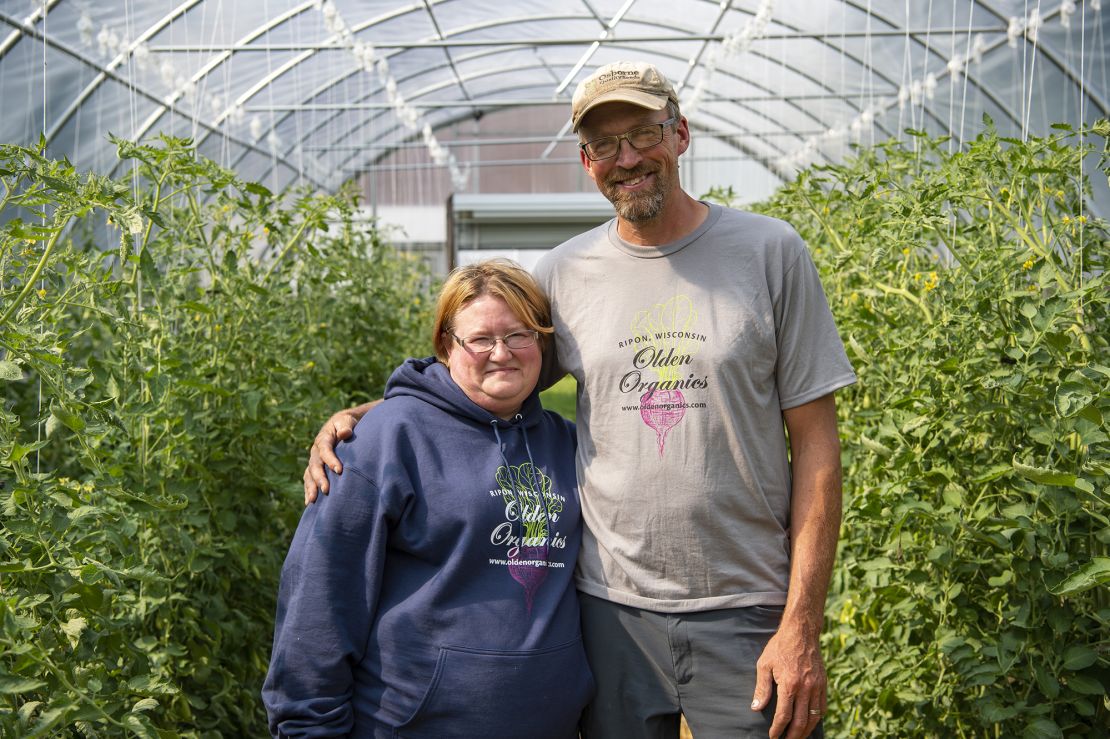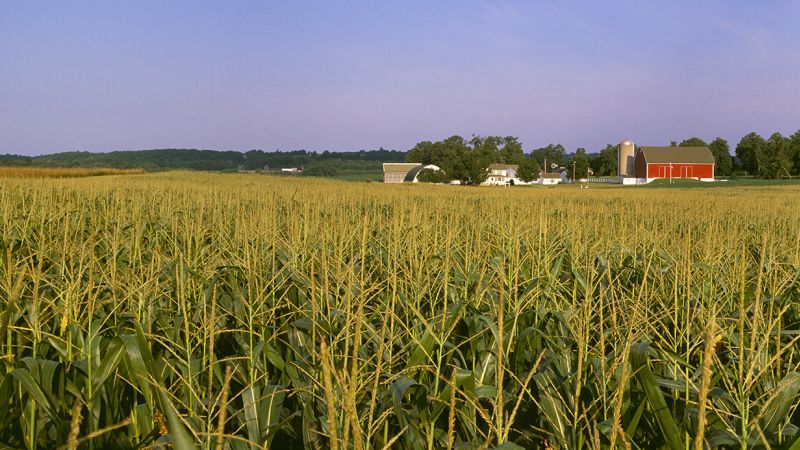CNN
—
Federal funding cuts have thrown local food systems in Wisconsin — and across the US — into chaos.
This month, the US Department of Agriculture (USDA) announced it is terminating 2025 funding for two pandemic-era initiatives: the Local Food Purchase Assistance (LFPA) and Local Food for Schools (LFS) programs. The initiatives together provided over $1 billion to farmers in 40 states, supplying fresh food to food banks, pantries and schools.
The USDA had previously signed a contract in January committing to fund Wisconsin’s LFPA program for 2025, according to the state’s Department of Agriculture, Trade and Consumer Protection. However, a USDA spokesperson told CNN the decision was part of a broader effort to transition away from temporary pandemic-era programs and focus on “long-term, fiscally responsible initiatives.”
“This isn’t an abrupt shift — just last week, USDA released over half a billion in previously obligated funds for LFPA and LFS to fulfill existing commitments and support ongoing local food purchases,” the spokesperson said.
Across the nation, farmers say they were blindsided by the funding cuts. In Wisconsin, 300 farmers participated in the LFPA program, funding $4.2 million dollars worth of food going to 254 pantries, according to the Wisconsin LFPA website. Many had already taken out loans and purchased equipment in preparation for the program’s continuation, said Tara Roberts-Turner, general manager of the Wisconsin Food Hub Cooperative (WFHC), a farmer-led distribution network serving more than 400 farmers and the state’s largest food hub.
Without the funding, she warned, small and midsized farmers could lose financial stability, local food infrastructure could unravel and underserved communities could struggle to access fresh food.
“The folks that formed the Food Hub and are participating in these programs are very tough, but at the same time, this is just a huge blow,” Roberts-Turner told CNN.
For two years, Wisconsin farmer Tracy Vinz, 50, supplied fresh produce to food banks through the LFPA program. Each week, she delivered vegetables from her midsized farm, Olden Organics, to the Oshkosh Area Community Pantry.
One moment, in particular, has stuck with her.
At the food pantry, an elderly woman, clutching a bag of cubed butternut squash, grabbed her arm, Vinz recalled. “Thank you,” the woman said. “This makes me feel human.”
Vinz said food pantries usually receive unhealthy food, but the squash in the woman’s hand had been harvested just hours earlier. In Wisconsin, more than 600,000 people face food insecurity, including over 200,000 children, according to Feeding America.

Vinz received a grant through the LFS program to supply schools with produce like vegetable sticks, broccoli and cauliflower. Her on-farm processing facility cleaned, peeled and prepped produce for schools that lacked the staff or equipment.
“We saved them time and got local food into schools. It was phenomenal,” she said.
Now Vinz is searching for new buyers, potentially from caterers or restaurants. Although it wasn’t her primary source of income, LFPA and LFS made up more than 25% of her sales in 2024. Before the USDA’s decision, she had invested $250,000 in processing equipment to meet growing demand.
But finding new markets is especially challenging during the spring, when farms are stretched thin. “We’re short on staff, and it’s hard to take time away to find new customers,” she said. “But we have to — to save our farm.”
Dawn Thilmany, an agricultural economist at Colorado State University, said the cuts will be particularly hard on midsize producers, who are too large to rely solely on farmers markets but too small to compete in large-scale commodity markets.
Without programs like LFPA, Thilmany warns, many farmers may be forced to sell into lower-paying national markets — or risk their crops going unsold altogether.
Roberts-Turner said this is a real possibility for some of the farmers who work with WFHC.
“I will assume some of the smaller farmers that we work with will likely — unless they get other markets — won’t be able to continue,” she said.
In rural parts of Wisconsin, getting fresh food to families isn’t as simple as loading a truck and hitting the road, Roberts-Turner said.
In urban areas, large grocery stores and food banks can place bulk orders. But rural communities are often spread out, with smaller orders scattered across miles of winding roads, according to a study by TRIP, a national transportation research nonprofit.
The LFPA program helped food hubs create transport networks, which involved mapping routes and investing in different truck sizes to make deliveries more efficient and affordable. During the Covid-19 pandemic, it helped fill the gap in food deliveries when major distributors like Reinhart and Sysco stopped going to rural communities.
Thilmany said food hubs are critical for rural areas, not only keeping farmers afloat but also strengthening regional food networks. The LFPA allowed many food hubs to invest in refrigerated trucks and expand their operations. WFHC was two years into a five-to-seven year plan to grow its infrastructure — progress that’s now stalled.
“So that’s kind of the hidden story here — besides helping farmers and ranchers, we’ve seen this redevelopment of more regional food infrastructure,” Thilmany told CNN.
The funding cuts also have sparked outrage among Wisconsin officials. Four days after the USDA’s announcement, Governor Tony Evers urged the Trump administration to restore funding that Congress had already approved.
“Here in America’s Dairyland, we stand up for our farmers, farm families, and producers,” Evers said in a statement. “And we’re going to fight to make damn sure our farmers have the resources and support Wisconsin promised.”
On Monday, US Senator Tammy Baldwin of Wisconsin urged the USDA to reverse its decision in a letter co-signed by 30 Senate colleagues.
“At a time of uncertainty in farm country, farmers need every opportunity to be able to expand market access for their products,” Baldwin said, noting that over half of the farmers who participated in the LFPA program were new.
To Roberts-Turner, the USDA’s decision is a “bad business move.”
“The investments have been made,” she said. “What we’re doing is actually lowering the cost of food. We’re lowering the cost of transport. We’re feeding our communities.”

